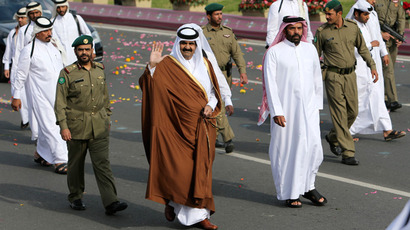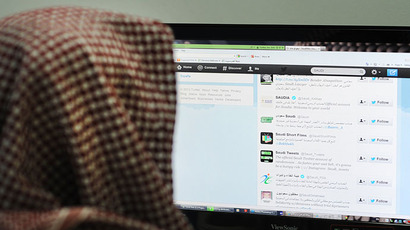Pressure builds on Qatar after ‘migrant workers abuse’ exposed
The United Nations has condemned Qatar for failing to comply with an international convention banning the use of forced labor, as the 2022 World Cup host faces a barrage of criticism following a report on slavery-like mistreatment of migrant workers.
The UN’s International Labor
Organization (ILO) says Qatar is failing to implement an
international convention banning the use of forced labor.
According to one of the provisions in the document, its
signatories (Qatar joined the convention in 2007) have to inspect
workplace conditions to ensure the rights of workers are not
infringed upon.
The criticism comes after an investigative report in The Guardian newspaper, exposing conditions faced by migrant workers in the country that are akin to slave labor. The report revealed that at least 44 Nepalese construction workers died in Qatar Between June 4 and August 8.
Sharan Burrow, general secretary of the International Trade Union Confederation, described Qatar as a “slave state” in an interview with RT. According to the Confederation’s estimates, 400 Indian and Nepali migrant workers die in Qatar every year and that figure is expected to grow to at least 600 as the country employs larger numbers of migrant workers to construct facilities for the 2022 World Cup. Burrow has drawn a grim picture of what life is for foreign contractors in the Gulf state.
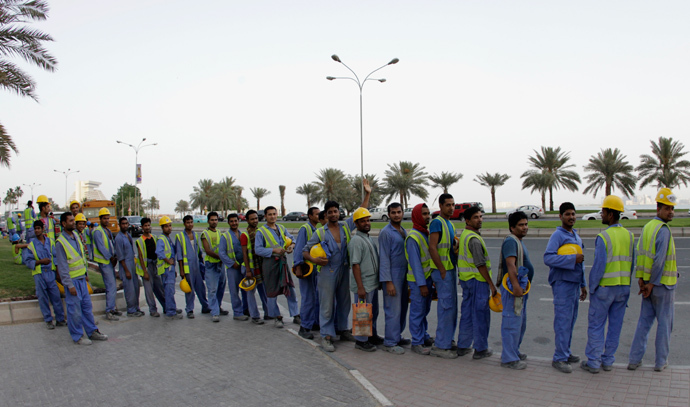
“Workers are exploited from the moment they are forced to pay money to recruitment agencies in Nepal, India, Philippines and other Asian or African nations. They sign a contract, and they go to Qatar. Often their contract is torn up and they are paid as little as $400 a month,” Burrow said. “Many of them are skilled workers. They are forced to live in squalor at those labor camps where you have 8, 10, 12 or sometimes more living in one room. They are often abused and underpaid. The work is dangerous. More than one worker a day will die in Qatar. And yet even if they want to leave, they can’t do it. They are basically owned by the employer, who has to sign an exit visa or indeed a transfer of working rights. Their passports are often held against the law. It’s appalling – and frankly, it could be fixed. We’ve offered the government solutions; they have no political will to fix it.”
In response to the accusations, Qatar’s Labor Ministry said it had strict rules governing working conditions and the prompt payment of salaries, but numerous human rights activists believe the existing laws are not being implemented.
One such activist is Nicholas McGeehan, a Gulf researcher at Human Rights Watch. He says the report was no surprise to him as he warned in 2010 – right after Qatar won its bid to host the World Cup – that the victory would lead to “the systematic exploitation of the country's migrant workforce and the possible enslavement of thousands if not hundreds of thousands, of impoverished south Asian migrant workers.”
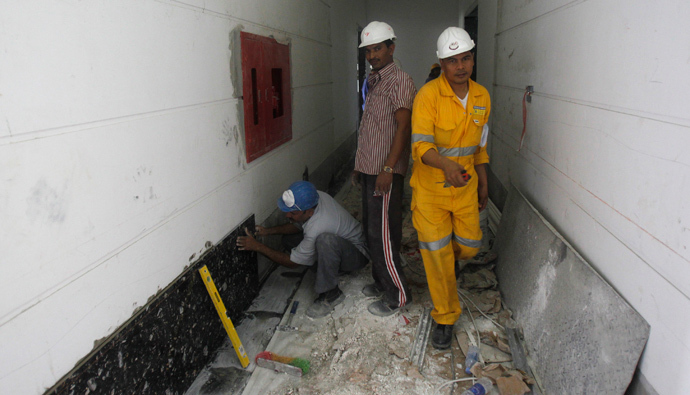
“In Qatar and across the Gulf the labor system and the legal framework fall totally short of the standards required, that there are series of appalling laws, which allow for the exploitation of workers, such as the kafala system of sponsorship-based employment,” McGeehan told RT. “And the laws which do exist to protect workers – for example the law prohibiting passport confiscation, the law prohibiting illegal recruitment fees – these laws aren’t enforced. Nor for that matter are any of the offenders prosecuted criminally. So, there is effective impunity for the employers – most of them Qatari – which results in horrific abuses.”
Aidan McQuade, director of Anti-Slavery International, has accused Qatar authorities of negligence based on racism. He believes the international community has to step in and force Qatar to fundamentally change its legal system.
“I suspect the core issue here is racism. It’s that truly the government of Qatar doesn’t care about those who are in such an appalling situation,” McQuade told RT. “And that’s at the core of a lot of contemporary slavery issues. I don’t want to see a boycott, I don’t want to see Qatar being stripped of the World Cup. I would like to see the World Cup being used as a mechanism for changing the situation. Now that they have the World Cup, the imperative is upon FIFA and indeed upon the rest of the world to insist that this World Cup is not constructed on slavery.”
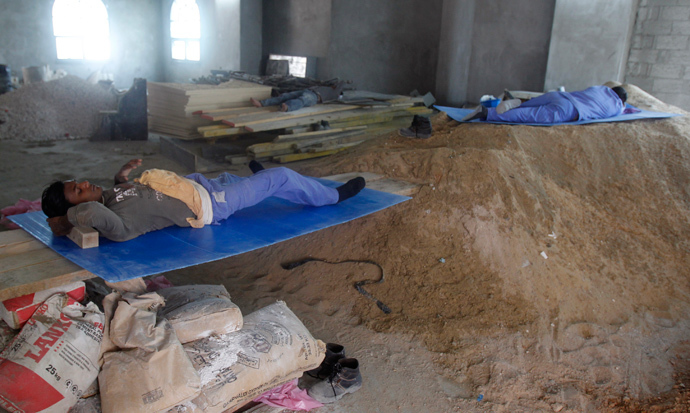
Some politicians and activists would like to see the 2022 World Cup boycotted, however. British Conservative MP Damian Collins is among the supporters of this extreme measure.
“I think that FIFA and the international football community should say to Qatar that this is completely unacceptable,” Collins told RT. “Unless you can demonstrate how you’ve put this right and the actions been taken for the abuses that have been committed so far, we’ll take the tournament away from you and open the competition up again. That should be the threat they have. If FIFA won’t do that, the pressure should come from the major competing nations that will be expecting to be taking part in that World Cup and say we won’t play in Qatar until these issues are resolved.”
The Qatar 2022 Supreme Committee, the body tasked with organizing the World Cup, earlier said it was concerned with the allegations of workers’ mistreatment. It also stated that the Qatari government was conducting an investigation into the accusations.
Football's governing body FIFA is expected to discuss the issue of forced labor in Qatar during its scheduled meeting in Zurich next week.













